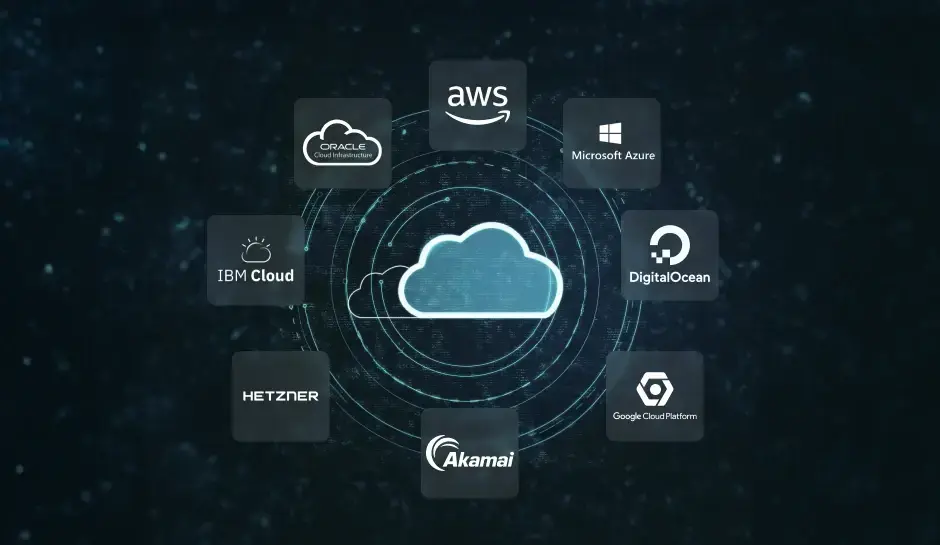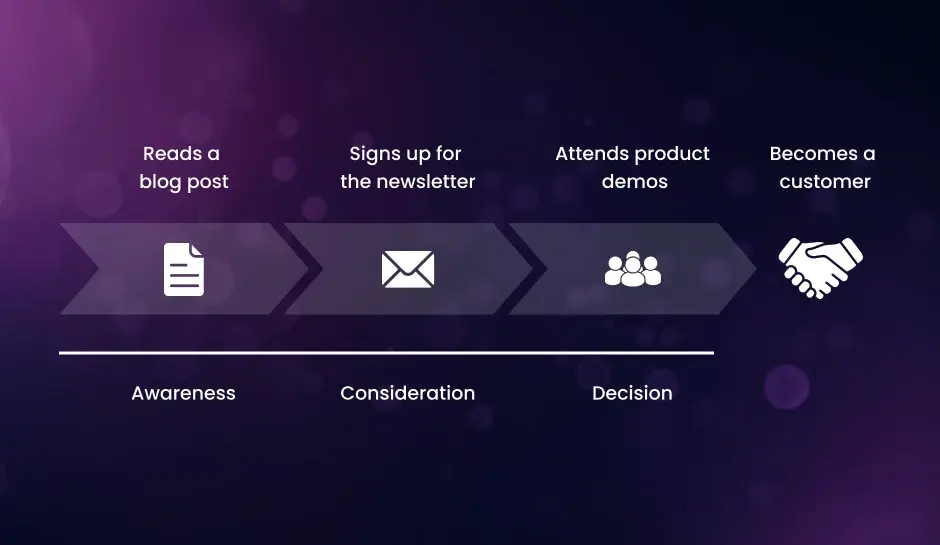Businesses these days are making sophisticated marketing decisions with data and analytics. Marketing analytics already empowers marketers with a wide range of data collection and transformation techniques. So, will AI and ML enable a leap forward – or just marginal gains? Let’s find out!
By tuning in to this episode, you can expect to come away with an understanding of:
- How AI and ML Fit into Marketing Analytics Processes
- How Marketers Can Strategically Handle Budgets With the Power of AI and ML
- Possible Challenges Marketers Could Face With the Induction of AI and ML into Their Marketing Analytics Processes
- Things to Keep in Mind When Adding AI and ML to the Marketing Analytics Mix
Featured Speakers -

Arpit Srivastava
Product Head and Co-Founder - DiGGrowthWith 16+ years of experience across data analytics, marketing, and digital business transformation, Arpit's approach to marketing analytics is grounded in his belief that data should be used to inform decision-making, not just drive it. He works closely with cross-functional teams, including marketing, product, and analytics, to drive growth and improve customer experiences.

Harshika Chadha
Lead Product Manager - DiGGrowthHarshika is a seasoned product manager with a passion for business transformation, design thinking, technology, marketing trends, SaaS security, and human-computer interactions. What interests her most is the intersection of these fields, which is why she stays on top of the latest industry insights to uncover strategies for success in today's dynamic business landscape.
Links and Resources
- Data-Driven B2B Marketing: 5 Ways Analytics Improve Personalization and Segmentation
- 5 Key Metrics Every CMO Should Be Tracking
- Marketing Analytics 101: 5 Challenges and How to Solve Them
Transcript
0:00
Welcome to the newest episode of the Revenue focus marketer where we discuss anything and everything related to marketing as well as data.
0:09
There was Hershey and today we will be discussing the role of artificial intelligence and machine learning in marketing analytics.
0:16
The world of marketing has changed significantly in the recent years with an increase in the number of marketing channels and touchpoints, as well as the rise of big data and increasing need for businesses to make data driven decisions.
0:29
Marketing analytics has become a crucial tool for businesses to better understand their customers and drive growth to understand the role of AI and machine learning in marketing analytics.
0:41
Today, we have with us at who has been a career marketer in a data analytics person.
0:47
He has worked in a variety of different industries both in house as well as on the agency side.
0:53
And he has recently co founded a marketing analytics platform that’s called so welcome.
01:03
So I was an experienced professional in this industry.
1:06
What is your take on the role of artificial intelligence and machine learning?
01:10
And how do you think it plays an importance in marketing analytics today?
01:15
Yeah, so I think what has happened of late is that big data and a variety of data and the veracity of data that has really the world called.
01:27
And it’s very difficult to do any manual data analysis anymore.
01:31
You need a system that can give you some insights, really help you in driving scientific decisions.
01:38
And that’s where I think it has a major role to play GPT for example, is a great example.
01:44
I think everyone is talking about it and there’s no like technical skills you need part like behind the scenes actually is helping you may be uncovered some of the keyword related data so that we were doing probably mangling earlier.
01:57
So keyword data is actually very great example of how marketers are leveraging.
02:03
I think I have personally also been a huge fan of like, it definitely makes me more efficient worker.
02:11
And I guess there’s a lot of other good idea of use cases for AI and environment today.
02:19
So let’s dive a little bit deeper.
02:21
And how do you exactly think that these to fit into the marketing analytics process today?
02:28
So I think I’ll just give one example is close to what We’ve been doing and it’s a great use case.
02:36
So, so typically, you know, B2B marketing world, the sales cycles are very long and you really want to understand like why you’re spending a lot of money in different channels.
02:48
Are you really driving good leads, bad leads and it’s very difficult to get that inside instantly because you don’t know.
02:56
But with machine learning and AI capabilities, what you can do is you can really create and cluster leads based on what has happened historically and apply those insights to your new leader set.
03:07
And with that, you would have an ability to really tell like the channels which marketing channels are driving great leads, for example.
03:16
And that was completely missing.
03:17
We were just shooting in the dark in the past.
03:20
That’s a great example.
03:22
But let’s tell deeper into how Ai and America can be impactful to use for a company, like what could be seen as the typical benefits.
03:32
So I think one of the bigger benefits typically, let’s say if the marketing department and person is taking care of the marketing budgets.
03:42
So every quarter, they have to decide where they can invest their money depending on what has passed.
03:49
Now, it’s really difficult to just go with your gut feeling or maybe just your experience because you don’t know there’s a lot of seasonality.
03:57
There could be a variety of factors that can influence the outcome with Ai and ML coming into the picture.
04:04
What it really does is it helps you really plan more effectively and scientifically in a sense that it can really recommend what’s the optimal budget across your media mix.
04:15
And that can really help you make those decisions with a lot more confidence and with an ability to really predict and project what kind of revenue we can drive and things like, like for example, how likely elite can convert those insights that can be predicted and the whole marketing planning process, it is very much A I assisted in that sense.
04:40
So I think that that’s where the modern schemas are.
04:44
Yeah, I think that’s a huge benefit like instead of just relying on something that might be an instinct or like based on just like, you know, one person experience, this is more quantifiable backed by data and it will definitely help you in making more strategic decisions that can help drive your growth.
05:03
So I think that’s a huge advantage.
05:06
And I think a lot of like, you know, companies have definitely started seeing the benefits of it and started investing a lot of time within research that goes into marketing, not just marketing but in different departments going for ML and in those cases.
05:24
So now that we’ve talked about certain advantages, let’s also delve into the other side of it.
05:31
I’m sure there are some challenges that you might foresee or like you’ve experienced in your Yeah, I think there are a lot, but I would definitely love that the biggest challenge is the equality of data.
05:46
So essentially it works on the principle of garbage in and garbage.
05:51
So you cannot really expect that if your data is incomplete inaccurate, it will give you an accurate insights or recommendation that you can trust.
06:00
So what we really need is a good solid foundation in terms of a data platform that not only just collects data but also monitors the quality of data, completeness of data flag.
06:12
If there are issues, fix those issues before we really jump into the modeling and production side of the house.
06:19
And that’s where I think companies really struggle because they think it’s a magic pill and that’s not really true.
06:24
You know, I think you make a great point, like a lot of us focus more on like, you know, getting these in but how to are these insights of our data that goes in is not accurate.
06:36
So I think focus definitely needs to, you know, this is a challenge that needs to be addressed before people start focusing on getting the outputs needs to be fixed before.
06:48
So what should businesses keep in mind when implementing AI and machine learning in the marketing analytics strategies?
06:55
Are there specific things that they should look out for?
06:58
I think broadly, I would say that there’s no platform or data that will do everything for you.
07:05
You always have to take a step back really looking to your people process and technology and sort of really ensure that you have other people who understand the whole stuff that you’re talking here, you have a process that defines how we are really interesting data, right?
07:24
Like understanding that subject matter expertise, the functional expertise.
07:29
So you cannot really left it to a loan, data scientists to solve it.
07:35
You cannot really left, leave it to A platform.
07:38
You really need a balance across your people process and technology and the investment you’re making a typical could be maybe just have the investment that you’re making, just split it evenly across people, process and technology.
07:53
So invest, let’s authority percent in buying platform that can enable invest 30% on the people who have right skills and then then obviously spending more on the process and the streamlining part of it.
08:06
Definitely, I think this reminds me of Levitt’s diamond model, right?
08:09
It’s not just a technology that can make a difference.
08:12
I know, I know we’ve chatted about this before.
08:15
There’s a lot of companies that implement new technologies, but because they do not take the time in investing into the right people and making sure the process is seamless.
08:25
They’re not able to really get the insights from like use of these technologies.
08:29
So yeah, I think you make a great point about how it’s not just like, you know, the techno people technology and the process all in all that make a huge difference.
08:42
I think that was super insightful.
08:45
Thank you so much for teaching us so much about today and how it all plays a huge role in marketing analytics in our world today.
08:54
Thank you for having me and thank you so much for tuning in and hope you join us in the next episode.




